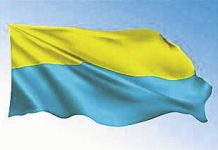I recently wrote a column about how we can learn a lot from George Washington. I wrote about how he was willing to walk away from power. He wouldn’t criticize the legitimacy of an election and play a wait and see game to learn if a vote turned out in his favor. He was willing to give up titles and political office.
There are other lessons we can learn from Washington. Sometimes we wonder how our ancestors might deal with a present-day crisis. We may even wonder how Washington might deal with a public health crisis.
We don’t have to wonder; we know.
In the midst of the American Revolution, George Washington fought two enemies simultaneously: the British army and smallpox.
Throughout the 18th century, smallpox ravaged populations in every corner of North America.
Much like COVID-19, smallpox killed hundreds of thousands of people.
We have been fighting the COVID-19 pandemic for about eight months. Washington and the colonial army fought the most powerful army in the world, the British, and a devastating pandemic for seven years.
Washington knew all too well the dangers of a pandemic. When he was 19 years old, he came down with smallpox. Although he was sick for almost a month; he was fortunate that it did not kill him or leave him with disfiguring scars.
Throughout most wars in human history, disease rather than bullets took more lives. That was true during the American Revolution. Washington knew that invisible pathogens were more dangerous than British guns.
Much of the British Army were already immune due to suffering through smallpox outbreaks in cramped and unsanitary European cities or they had been inoculated. There is no way the American army could fight the British while suffering the scourge of a pandemic.
Washington made a risky decision for that time. He ordered the vaccination of the entire American army. During the late 1700s, many people considered inoculation a dangerous and unproven technology. We do not give Washington enough credit or attention for this action. This was as important as any decision he made on the battlefield. If Washington had not inoculated his army against smallpox, it would have lost. During the last phase of the war, the decisive campaigns in the South, the American army was at nearly full strength.
Today, some modern commentators would label Washington a tyrant. They would portray his mandate to inoculate the Continental Army as some sort of government overreach, depriving Americans of their constitutional rights. Today, internet trolls would complain that Washington was part of some preposterous deep-state conspiracy theory.
We can criticize Washington for many things. Most egregious is his owning other human beings.
But there is no questioning Washington’s credentials as a patriot. He was fighting a government’s intrusion on the rights of individuals. He was fighting for a freer government and society.
How would George Washington deal with the COVID-19 pandemic? Washington favored a massive and dramatic solution to a dire health crisis. He instituted an expensive and controversial public health measure to save the lives of Americans. What would George do?
He’d wear a mask and take the vaccine. Then he would order others to do the same. He would set an example for the people.
To learn more about Washington’s efforts to save his army and nation from smallpox, read "Pox Americana: The Great Smallpox Epidemic of 1775-82," by historian Elizabeth Fenn. It is excellent.
Aaron Miller is one of The Republic’s community columnists and all opinions expressed are those of the writer. He has a doctorate in history and is an associate professor of history at Ivy Tech Community College — Columbus. Send comments to [email protected].





